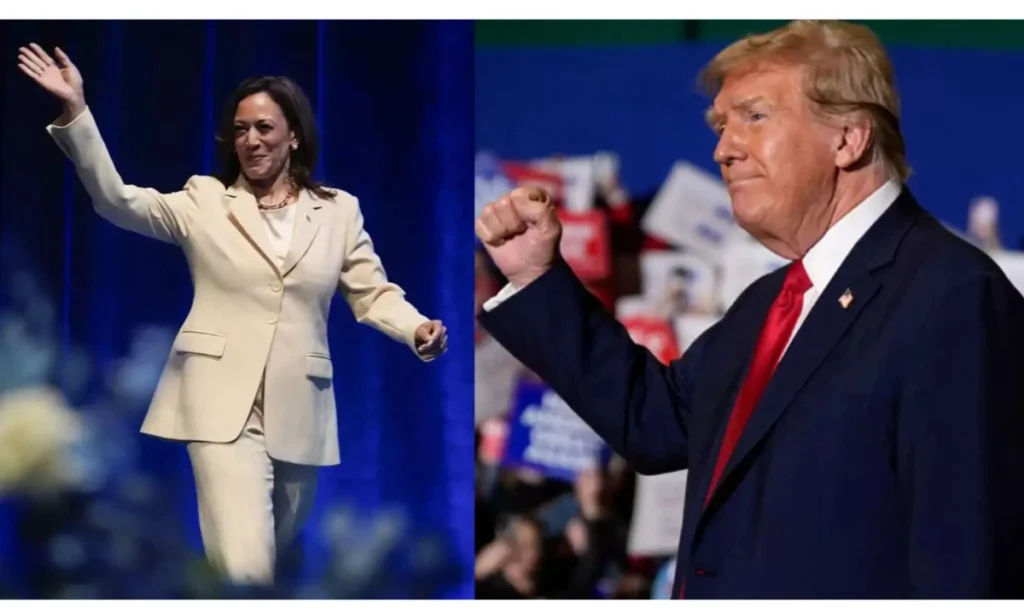
Trump personally triumphed solely within the same swing states again, marginally increased his vote shares nearly across the board, and did establish a clear majority at the polls, contrary to his previous campaign’s narrow triumph.
Besides, he conceded with a big majority in the Senate that looks even more Republican today than in the pre-election polls predicted and may take a bigger majority in the House too, even if some districts remain still to be called.
These are not marginal gains they are in fact very profound, they seem to be charting a new phase of America political development.
Demographers and sociologists will probably take a long time trying to understand the implications and factors that led to this election. My focus is more immediate.
Although the data are imperfect and incomplete, I will offer preliminary answers to two questions, which are really two sides of the same coin: Why did Donald Trump end up being the president in 2024 while Kamala trump vs harris pollslost the same election?
For the most part, Trump’s theory of the case was right. He and his campaign managers were convinced that this base could be built on the Republicans’recent advances amongst the white working class and become a multiethnic working class vote.
He was right: To the extent that the exit polls are representative, he gained some with Latinos and African Americans particularly male ones. Among the Blacks he improved his position on vote of Black males from 12% to 20% while among the Hispanic men he polled 9% lead 54%-45%.
The Trump campaign also thought that they could do a better job with young adults, and they did —going from 35% in 2020 to 42% this year. Indeed, according to limited survey data, about 60 percent of this increase is estimated to be due to migration from Democrats to Trump among young men.
Trump was listening to numerous podcasts, in particular, those by Joe Rogan the principal audiences of which are this otherwise virtually untouchable population sample.
The tactical decisions made by the Trump campaign benefited the loss-making organisation. Three proved to be very important.
First Believing that Trump’s raw emotional connection with voters would handle the lions share of the persuading and motivating, the campaign did not put time and money into the standard get out the vote efforts, instead subcontracting them out.
Despite the campaign managers insisting that Harris has a superior ‘ground game’, there seems to be little evidence of any of this.
Second: Within the Trump campaign’s analysis, Harris was wrong on transgender issues and so they ran ads identifying her as the Willie Horton of 2024 Everywhere south the attacks of Harris dominated the airwaves Anecdotally, one supposes that this campaign undermined an essential effort by Harris to position herself as the moderate liberal rather than a representative from San Francisco.
Third: This paper analyses how Donald Trump has chosen to moderate his position on the issue of abortion proactively by stating that every state should be free to sort this issue on their own, and then proceed to threaten to veto any attempts at forming a unified anti-abortion front across the country.
Abortion opponents, which many of were longtime foes of abortion, were disappointed and some angry. Nonetheless, Trump continued to ride scot-free, receiving 81 percent of the white evangelical voters, which remains as high as four years ago.
The Harris campaign was always out to fight an uphill battle. She was the vice-president of a president whose popularity rating dropped mid-first year of his administration, and it would not rise again.
On two important matters – inflation and immigration – the public judged his performance to be woefully poor and Harris got stuck with this sentiment when Joe Biden decided quit in his second bid for presidency.
Though, the timing of Biden’s decision to withdraw from the race was impeccable, the same could not be said about the same for Harris.
Obama’s delayed choice denied her a chance to hone her debating points in a contest with other primary contestants and limited the time she could spend interning herself to the voters.
Also Read About



